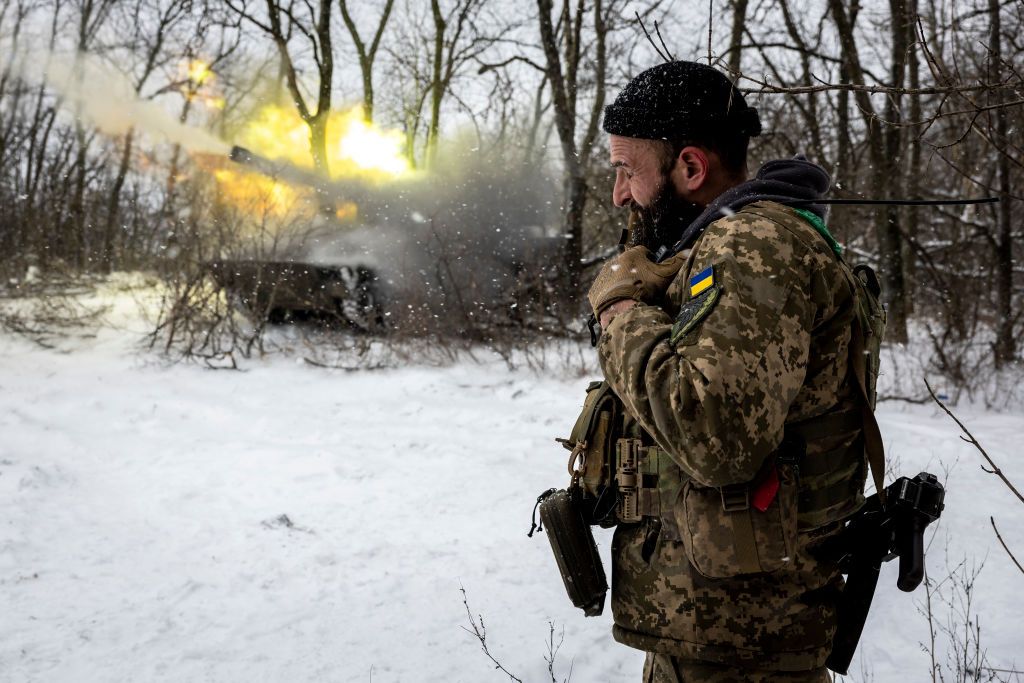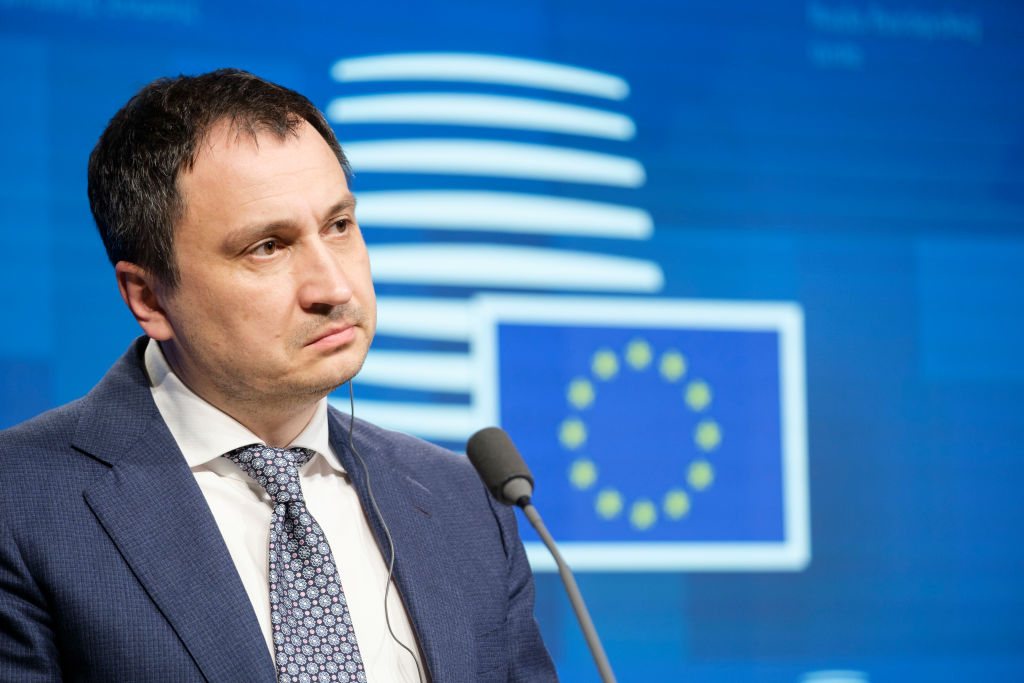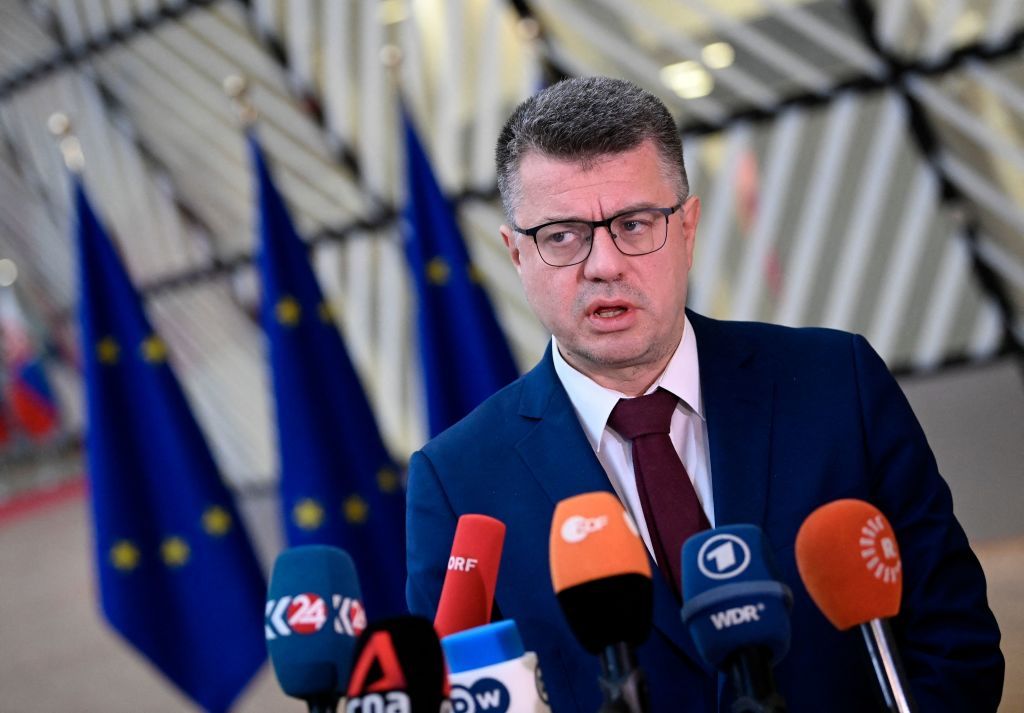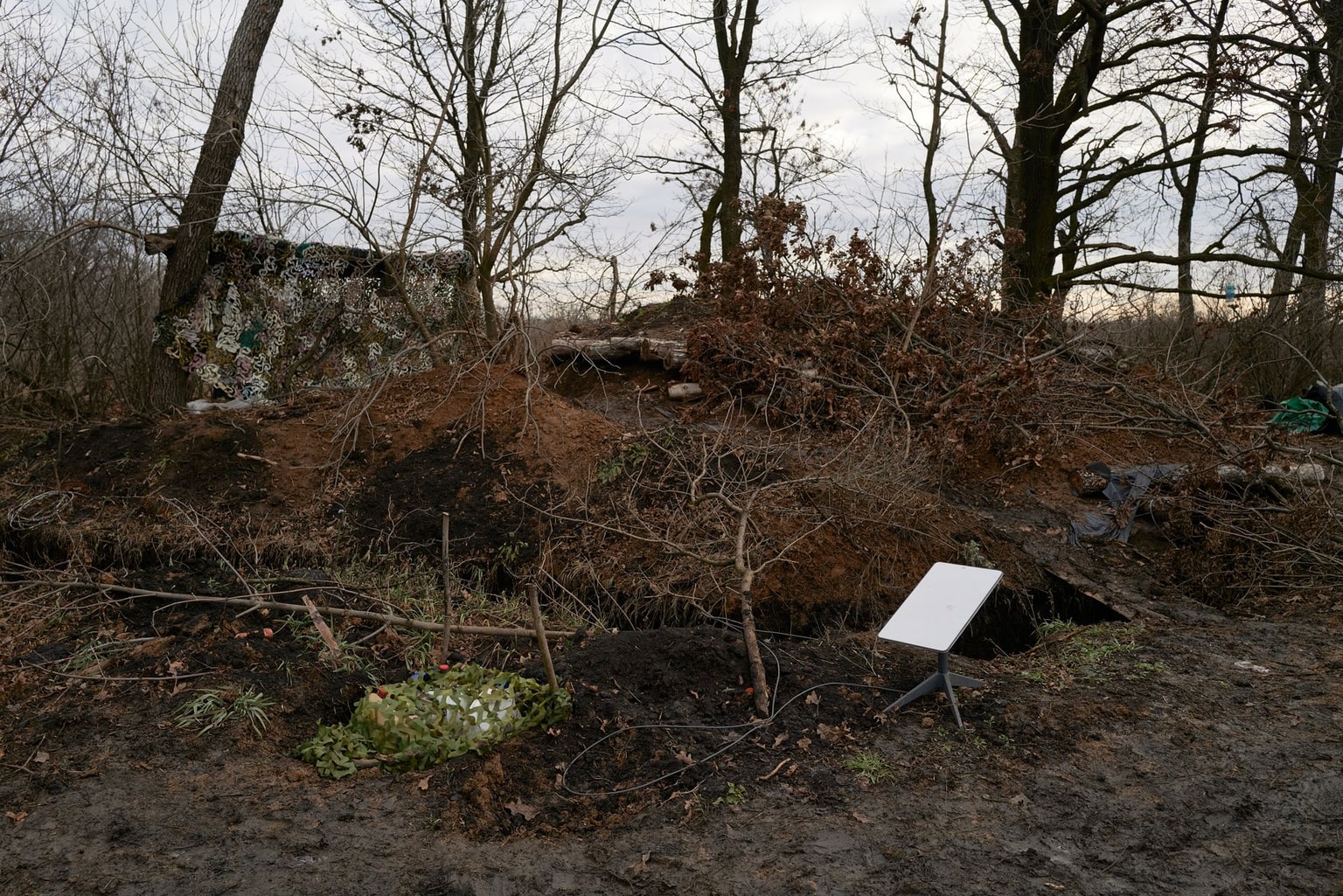Ukrainian State-Owned Enterprises Weekly – Issue 82

Editor’s Note: This is issue 80 of Ukrainian State-Owned Enterprises Weekly, covering events from April 1-7, 2023. The Kyiv Independent is reposting it with permission.
Ukrainian SOE Weekly is an independent weekly digest based on a compilation of the most important news related to state-owned enterprises (SOEs) and state-owned banks in Ukraine. This publication was produced with the financial support of the European Union within the project “Supporting Ukraine in rebuilding and recovery” implemented by the KSE Institute. The contents of this publication are the sole responsibility of the editorial team of the Ukrainian SOE Weekly and do not necessarily reflect the views of the European Union.
Corporate governance of SOEs
Ukraine must reform SOE corporate governance to meet the IMF’s conditionalities; structural benchmark set for GTSOU. On March 31, the International Monetary Fund’s (IMF) Executive Board approved a four-year, $15.6 billion financing package to help Ukraine meet urgent financing needs amid the ongoing war.
The IMF has published Ukraine’s Request for an Extended Arrangement under the Extended Fund Facility. Corporate governance reform of SOEs is among the new program criteria.
- Ukraine must reform the corporate governance of GTSOU. According to the IMF’s program, the authorities have committed to implement all the following steps:
- Transfer all shares of the Gas Transmission System Operator of Ukraine (GTSOU) directly from the Main Gas Pipelines of Ukraine (MGU) to the Ministry of Energy and adopt the GTSOU’s new charter which was developed and agreed with the Energy Community Secretariat (EnCS) by the end of June 2023 (structural benchmark);
- Select and appoint a supervisory board for GTSOU by the end of October 2023;
- Subsequently, appoint a new CEO and eventually liquidate MGU.
In an interview with ICIS, Dirk Buschle, deputy director of the EnCS, insisted on the importance of corporate governance reform of GTSOU. He noted that if no steps are taken to tighten up the corporate governance at GTSOU and to guarantee the independence of the supervisory board, the EnCS would be forced to reconsider the company’s certification (as an independent transmission system operator).
ICIS also spoke to Oleksandr Lysenko, a member of the SOE Weekly team. Lysenko raised concerns that – once the Ministry of Energy gets MGU’s shares – MGU’s current supervisory board might get moved over to GTSOU, instead of GTSOU getting a new board selected via a transparent and merit-based process.
In SOE Weekly (Issue 80), we reported that MGU’s supervisory board appointed Dmytro Lyppa as the new CEO of GTSOU.
In Issue 79, we reported that in its Priority Action Plan for 2023, the Cabinet of Ministers declared plans to bring the corporate governance of GTSOU in line with the OECD Guidelines on Corporate Governance of SOEs. According to the Plan, GTSOU must be transferred to the Ministry of Energy, get a supervisory and executive board, and a new version of its charter must be approved. The deadline is December 2023.
In Issue 71, we also reported that the European Pravda media outlet revealed the conditions that Ukraine must meet to receive the EU’s macro-financial assistance (MFA) package. One of these conditions is to launch the corporate restructuring of GTSOU by June 2023.
In Issue 67, we reported that on Oct. 4, the EnCS wrote a letter to Prime Minister Denys Shmyhal and Minister of Energy Herman Halushchenko, urging the government to immediately implement GTSOU’s corporate governance action plan:
- transfer the ownership of GTSOU from MGU to the Ministry of Energy;
- adopt a new charter for GTSOU, establishing an independent supervisory board;
- run a competitive selection for GTSOU supervisory board members;
- have an executive board elected and appointed by GTSOU’s new supervisory board.
- The authorities must restore regular reporting by SOEs. According to the IMF program, the Ministry of Finance plans to gradually restore all reporting requirements for SOEs that are not located in temporarily occupied territories or combat zones, which would be an important input into the fiscal risk assessment, particularly in preparation for the medium-term budget framework.
The IMF program does not specify reporting requirements and whether such reporting should be publicly available. Following the full-scale Russian invasion of Ukraine, the government restricted access to ProZvit, a portal containing financial information on SOEs, as well as data on monitoring the effectiveness of SOE management and corporate governance, which were previously available on the Economy Ministry’s website.
The state continues to maintain and provide public access to the Register of Economic Entities of the State Sector of the Economy, with the latest update dating back to Oct. 1, 2022. A lot of information on SOEs is also available through private data aggregators, such as YouControl or Opendatabot. Additionally, individual SOEs, such as Naftogaz or Energoatom, publish detailed information on various aspects on their websites.
- The National Bank of Ukraine will undertake detailed bank diagnostics. The National Bank of Ukraine’s banking oversight teams would complete an asset valuation and solvency assessment of banks comprising 90% of banking system assets by the end of December 2023.
Note that the four state-owned banks – PrivatBank, Oschadbank, Ukreximbank, and Ukrgasbank – are responsible for some 51% of the banking system assets. In that respect, this measure mostly covers state-owned banks.
- The authorities commit to strengthen the corporate governance of SOEs. A draft law bringing the SOE corporate governance framework in line with the OECD Guidelines on Corporate Governance of SOEs (Draft Law No. 5593-d), including by strengthening the accountability and broadening the powers of supervisory boards so they have the ultimate authority to appoint and dismiss CEOs, would be adopted by October 2023.
In SOE Weekly (Issue 36), we reported that, on July 15, 2021, the Verkhovna Rada approved draft law No. 5593-d on the corporate governance of SOEs in the first reading.
The current wording of draft law No. 5593-d is not yet in full compliance with the OECD Guidelines on Corporate Governance of SOEs and needs improvement. The final version of the draft law pending a second reading is not yet publicly available.
Also, there may be no room for significant improvement of draft law 5593-d. According to Ukraine’s law-making procedures, amendments to a draft law should be proposed by parliament members no later than 14 days after the draft was adopted in the first reading.
This means that the term for proposing amendments to draft law 5593-d ended on July 30, 2021. The final wording of the draft may only change within the amendments proposed by parliament members.
MGU discloses much of the key corporate information that it had not disclosed earlier. Last week, the SOE Weekly pointed out that Main Gas Pipelines of Ukraine (MGU) was failing to disclose essential corporate governance information (see Issue 81).
Over this week, MGU confirmed the resignation of its former board chair, Huberte Bettonville. According to both the Ukrainian and English versions of MGU’s website, Bettonville is no longer listed as a member of the supervisory board, and Jan Chadam is listed as the board chair instead.
MGU has also publicly disclosed Bettonville’s resignation and Chadam’s election as board chair. According to its notice, the supervisory board terminated Bettonville’s powers in accordance with her resignation letter dated March 6, and Chadam became the new chair on March 21.
Finally, MGU disclosed information on its CEO. Denys Fudashkin is now listed as the acting CEO on both the Ukrainian and English versions of MGU’s website, as well as in the notice of change of company officers. According to the notice, the supervisory board terminated Oleksandr Lisnichenko’s powers as acting CEO on March 7. On the same day, the board appointed Fudashkin as the new acting CEO. He took up his new position on March 8.
In SOE Weekly (Issue 81), we also wrote that MGU’s latest disclosures to the National Securities and Stock Market Commission (NSSMC) via the SMIDA database and the company’s website dated back to November 2021.
As we also wrote, according to the company’s website, MGU published only one remuneration disclosure in 2018 to comply with the joint-stock company legislation, but it has never published one since.
Another suspicion against Antonov CEO – SBU charges him with letting the world’s biggest plane get destroyed. On April 5, the Security Service of Ukraine (SBU) reported that it had served a notice of suspicion to former Antonov CEO Serhiy Bychkov. He is charged with negligence, allegedly due to which the world-famous cargo plane, the AN-225 Mriya was destroyed by Russian troops.
According to the investigation, Bychkov had to organize the timely evacuation of the aircraft from the Hostomel airport at the beginning of 2022. To ensure the protection of the aircraft, it was supposed to be transported to an airport in Leipzig, Germany.
On the eve of the full-scale invasion, Mriya was in good technical condition and could have flown out. However, Bychkov did not authorize the evacuation of the plane (despite proposals to do so). The SBU claims that these criminal actions led to the destruction of the aircraft, with resulting losses estimated at Hr 8.4 billion ($230 million).
Bychkov also allegedly failed to ensure the timely extension of the aircraft’s insurance contract. As a result, Antonov lost over Hr 42 million ($1.1 million) in insurance reimbursement, the SBU added.
According to the National Police, investigators are also checking information on the possibility of having evacuated six other aircraft, including the AN-124 Ruslan, which were at the airport at the time.
According to the Prosecutor General’s Office, the suspect is currently in custody without the possibility of bail.
In SOE Weekly (Issue 78), we reported that the SBU served a notice of suspicion to Bychkov, accusing him of obstructing the Armed Forces of Ukraine.
According to the SBU, on the eve of Russia’s full-scale invasion, the Antonov management did not allow the Ukrainian army to enter the territory of the Hostomel airport to prepare for its defense.
The acting deputy CEO and the deputy CEO for aviation security were also notified of the suspicion. According to media reports, these are Mykhailo Kharchenko and Oleksandr Netiosov.
Energy
Ukrhydroenergo’s CEO interviewed. Ukrhydroenergo’s CEO Ihor Syrota was interviewed by Interfax-Ukraine this week. We selected the key points.
On the consequences of missile attacks:
- “Missile attacks on our facilities began on Oct. 31, 2022. Since then, more than 30 missiles have hit our facilities. And while in August we lost 120 MW of capacity, which is two units at Kakhovka HPP, as of today we have already lost 300 MW of Kakhovka HPP, which has been out of operation and has not been generating electricity for several months. In total, we have lost 2,000 MW.”
- “We have already repaired 500 MW, and another 1,500 MW needs to be repaired.”
On the financial situation:
- “Losses in Kakhovka amounted to Hr 16.7 billion ($457 million) as of August 2022, and to recover from the next strikes, we need at least Hr 22 billion ($602 million) more.”
- “With the funds that the company now has after fulfilling the PSO (public service obligation) for 2022, we need at least five years to cover this amount of Hr 22 billion.”
Energoatom and Ukrhydroenergo were granted the right to sell electricity on market terms from Oct. 1, 2021. Under the new PSO’s financial model, the proceeds were used to compensate electricity providers for the difference between the regulated household tariffs (Hr 1.44/kWh and Hr 1.68/kWh depending on the volume of consumption) and market prices.
Since October 2021, the Cabinet of Ministers has repeatedly extended the PSO mechanism to keep electricity tariffs for households unchanged. The PSO mechanism would be in place until April 30, 2023 – the price of electricity would remain unchanged until the end of the heating season.
- “If I am not mistaken, we have Hr 1.9 billion ($52 million) in PSO debts today. This is also a lot of money for us because only three months of the year have passed. If we are (allowed) not to pay the PSO, it will (only) take us a year and a half to recover – without loans” (rather than the five years mentioned above.
- “We are looking for donors. Since January, we have been working with both the European Investment Bank and the World Bank to obtain low-interest loans.”
Ukrenergo receives 700 million euros in loans to restore the power grid after Russian attacks. On April 3, Ukrenergo’s CEO Volodymyr Kudrytskyi reported that international partners and donors have provided more than 700 million euros in loans to restore the power grid.
In SOE Weekly (Issue 78), we reported on the previous wave of Russia’s missile and drone attacks on March 9. This was Russia’s 15th mass attack.
After every Russian mass missile attack on Ukraine’s vital infrastructure, emergency outages often last for days due to the ongoing repair works. During such outages, people in Ukraine are often left without electricity, heating, water supply, or access to mobile phone networks.
Infrastructure
S&P upgrades Ukrzaliznytsia’s credit rating. On April 3, Ukrzaliznytsia reported that S&P Global Ratings raised its credit score to CCC+.
The recent completion of the $895 million debt restructuring contributed to the rating upgrade, Ukrzaliznytsia explained. According to the company, this agreement and other projects with international partners have helped to ease pressure on Ukrzaliznytsia’s liquidity, and its contractual debt repayments will be reduced by more than 90% in 2023-2024.
The company said that S&P also noted the successful re-purposing of a 150 million euro credit line with the EBRD for liquidity needs and the write-off of debts from Russian banks in accordance with the law that came into force in August 2022.
Ukrzaliznytsia added that S&P gave the company the same rating as the sovereign debt rating, which is the highest possible result in wartime.
In SOE Weekly (Issue 73), we reported that Ukrzaliznytsia completed the final formalities for the restructuring of payments for two Eurobond issues totalling $895 million. Interest and principal payments on Ukrzaliznytsia bonds were deferred for two years.
Repayments of Eurobonds issued in 2019 ($594.9 million) were deferred from 2024 to 2026; payments for the 2021 issue ($300 million) were deferred from 2026 to 2028. Coupon payments due in 2023-2024 were deferred until January 2025 with possible capitalization.
In Issue 66, we reported that Fitch Ratings downgraded Ukrzaliznytsia’s Long-Term Foreign-Currency Issuer Default Rating (LTFC IDR) to ‘C’ from ‘CC’ following its consent solicitation to defer the debt servicing of its U.S. dollar loan participation notes (LPN) maturing in 2024 and 2026.
At that time, S&P Global Rating downgraded Ukrzaliznytsia’s rating from ‘CCC-’ to ‘CC’ because of the company’s solicitation to defer all payments on the above Eurobonds.
HACC sets Hr 4 million bail for former First Deputy Minister of Infrastructure Shulmeister. On April 4, the High Anti-Corruption Court (HACC) imposed a measure of restraint on Volodymyr Shulmeister, former First Deputy Minister of Infrastructure.
He and former Minister Andriy Pyvovarsky are suspected of abuse of power, which caused the state over $30 million in losses, the Specialized Anti-Corruption Prosecutor’s Office (SAPO) reported.
According to SAPO, the court partially granted the motion and imposed a bail of Hr 4 million ($109,000). Shulmeister must deposit the funds to the HACC account within five days from the date of the court’s ruling.
Shulmeister also has the following obligations:
- Appear at the first request of the detective, prosecutor, or court;
- Notify the detective, prosecutor, and court of any changes in his place of residence and work or travel abroad;
- Refrain from communicating with other suspects in the case and witnesses.
The ruling may be challenged at the HACC’s Appeals Chamber within five days of its announcement.
Shulmeister commented on the court’s ruling on his Facebook page. He said that the judge reduced the bail amount by 20% compared to the prosecutor’s request. Shulmeister also wrote that he was not running from anyone and was not hiding anywhere.
In SOE Weekly (Issue 80), we reported that former Infrastructure Minister Andriy Pyvovarsky posted bail of Hr 10 million ($273,000), which the HACC’s investigating judge had set for him on March 16 (see Issue 79).
According to the National Anti-Corruption Bureau of Ukraine (NABU), in 2015, Pyvovarsky issued an order allowing private companies to charge half the harbour dues at Pivdenny seaport. The water area of this port is state property in the use of the Ukrainian Sea Ports Authority (USPA). Only a state enterprise has the right to charge harbour dues, NABU said.
Pyvovarsky responded that according to the law “On Sea Ports of Ukraine,” proceeds from tonnage tax are distributed between the user of the port’s harbour (in this case, USPA) and the owner of the operational harbour (in this case, private company TIS). He argued that the ministry’s order was therefore not a crime. See SOE Weekly’s Issue 76 for more detail.
In Issue 76, we reported that on Feb. 22, NABU and SAPO served Pyvovarsky a notice of suspicion of abusing his powers, which allegedly caused more than $30 million in damage in 2015.
Pyvovarsky served as the minister of infrastructure in the Arseniy Yatsenyuk government from December 2014 to April 2016. Volodymyr Shulmeister, who had been the First Deputy Minister of Infrastructure and chaired the ministry’s Tariff Council, was also charged in absentia.
In Issue 77, we reported that Pyvovarsky wrote on his Facebook page that NABU asked the court to set his bail at Hr 20 million ($547,000). Pyvovarsky emphasised that he fully disagreed with the charges and the motion to set bail.
















